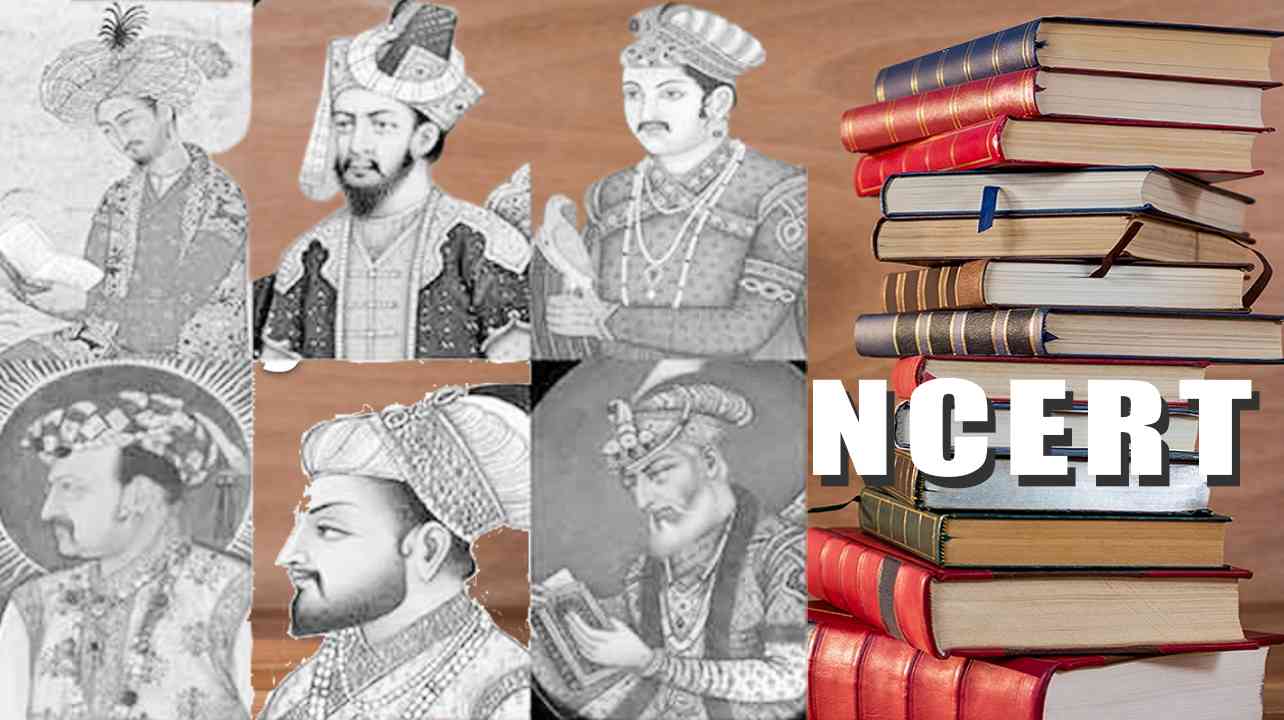PROPAGANDA IN THE NAME OF EDUCATION: Persistent Attacks on the NCERT Textbooks

The National Council of Educational Research and Training (NCERT) has removed the chapter on ‘Kings and Chronicles: The Mughal Courts (16th and 17th Centuries) from the history textbook’s ‘Themes of Indian History – Part II’. The removal sent down a few shockwaves since Mughal administrative unification played a key role in shaping the territorial and cultural map of India as we know it. Notwithstanding the long-standing British colonial / Hindutva propaganda regarding ‘Islamization’ during Mughal rule, the Mughal era has bequeathed a rich tradition of inter-religious mixing and syncretism which notably shaped the Bhakti movement and other cultural currents which are now claimed as ‘Hindu’. In November 2022, in a meeting in Assam, Home Minister Amit Shah had declared: ‘Who can stop us now from rewriting our history with pride? We will have to amend this and put our history in front of the world with pride.’ On that note, in the recent past, Mahatma Gandhi’s efforts towards building Hindu-Muslim unity, the ban on the Rastriya Swayamsevak Sangh (RSS) following Gandhi’s assassination, Nathuram Godse’s role in the assassination and his Brahmin background, have all faced the wrath of the government approved ‘experts’. Similarly, chapters like ‘Central Islamic Lands’, ‘Confrontation of Cultures’, and ‘Industrial Revolution’ have been removed from the 11th grade textbook ‘Themes in World History’.
Amendments to Indian history need to be read with similar changes in other subjects. References to Dalit writer Om Prakash Valmiki have been removed from the social science textbook for Classes 7 and 8. Previously references to the 2002 Gujarat riots was deleted; passages that dealt with Emergency’s draconian impact on people and institutions was dropped; chapters on protests and social movements, including those spearheaded by the Narmada Bachao Andolan, Dalit Panthers, and Bharatiya Kisan Union were dropped from social science textbooks. Clearly, three themes have been deleted or diluted in these post-2014 efforts to saffronize textbooks. First, the mention of Muslims as an integral part of Indian history, second, the mention of popular socio-political mass movements in this country, and third, the atrocities committed by the RSS and their ideologues.
Aligning school syllabi has been part of the RSS agenda for a long time. The National Education Policy (2020) has now given them the necessary policy architecture to accord legitimacy to this realignment. The influence of the RSS is palpable on the learning objectives as defined in the NEP 2020. It is a curious blend of the Sangh’s own values and constitutional values, done in a way that undercuts the significance of constitutional rights which happens to find no mention in the document. Full of references to ancient Indian tradition, and none to Islam, as a source of values, the document outlines the inculcation of duties as opposed to rights as the key objective of education.
The NEP 2020 facilitates saffronization in other ways too. It encourages the government to outsource functions such as teacher-training, assessment, security services in educational premises to private bodies. With no clarity on the regulation of participation by NGOs and private organizations in education, there is genuine apprehension that RSS backed bodies will find a greater role in teacher education, assessment, and other on campus services. This will work in tandem with saffronized syllabi to create an ambience of fear, division, and subservience in education, thereby undercutting critical and pro-constitution pedagogies. Big corporates stand to profit enormously in this arrangement by being handed a cheap, pliant labour force through a massively downsized, vocational education, and the Hindutva reshaping of curriculum, not to mention the new opportunities for profit (overt or hidden) opened up by the NEP.
The attacks on the NCERT syllabus demand our attention because the current textbooks reflect peoples’ democratic traditions and the constitutional spirit more than previous textbooks. This curricular framework was produced in 2005, during the Congress-led government, but the textbooks went beyond Congress-oriented narratives of Indian society and history. The post-2005 school history curriculum, to take an example, emphasised on regional histories, reckoned with histories of caste and gender oppression with a view to overcoming them, and sought to teach children to think historically instead of overloading them with information about the past. This curricular framework was the product of limited but significant democratization of education that happened since the 1970s. It brought together perspectives of generations of Dalit Bahujan, feminist, Adivasi, and Marxist scholars. The attack on the NCERT syllabus is another face of the assault on public educational spaces that produced such critical minded scholarship.
Charu Bhawan, U-90, Shakarpur, Delhi 110092
Phone: +91-11-42785864 | +91 9717274961 E-mail: info@cpiml.org

